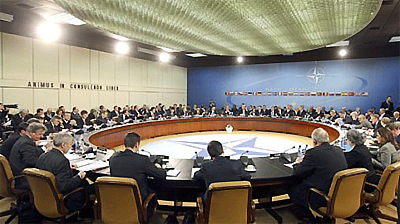Business New Europe: NATO ramps up presence in Eastern Europe

(Business New Europe – bne.eu – bne IntelliNews – February 6, 2015)
Nato has agreed to establish a new rapid reaction force, boost its troops in Poland and Romania, and establish six command and control centres in Central and Southeast Europe as part of the alliance’s response to the Russian aggression in Ukraine.
According to Nato’s secretary general Jens Stoltenberg, the rapid reaction unit known as Spearhead Force will be the “centrepiece” of the current Nato Response Force (NRF). It will consist of a land brigade of about 5,000 troops, supported by air, sea and special forces.
“The lead element of this land brigade will be ready to move within as little as 48 hours, with the rest moving within a week,” Stoltenberg said. The Spearhead Force will be backed by two more brigades in case of a “major crisis.”
The Spearhead Force will rely on France, Germany, Italy, Poland, Spain and the UK as so-called “framework nations”, providing the main elements of the force.
Following the decision, the NRF – which will itself undergo some restructuring to improve its capability – will more than double in size, from the current 13,000 troops to about 30,000.
During the meeting in Brussels on February 5, Nato defence ministers also agreed to establish six multinational Nato command and control units in Lithuania, Latvia, Estonia, Bulgaria, Poland, and Romania, with rotating personnel, focussing on planning and exercising collective defence.
Finally, the ministers also agreed to “raise the readiness and capabilities of the Headquarters Multinational Corps Northeast in Szczecin in Poland and enhancing its role as a hub for regional cooperation”. Romania’s also intends to make available a new deployable Multinational Divisional Headquarters as Multinational Division Southeast.
Nato’s decisions thus respond to what the alliance’s secretary general Jens Stoltenberg described on February 5 as a “very critical time for security in Europe, and across the world”.
“In Ukraine, violence is getting worse and the crisis is deepening. Russia continues to disregard international rules and to support the separatists with advanced weapons, training and forces,” he said.
Tension in the Baltic States has been running high since Russia annexed Crimea in March 2014. The concern in the Baltics is underpinned by the fact that each of the small countries has a sizable Russian minority, part of the complicated legacy of their forcible incorporation into the Soviet Union after the second world war.
[featured image is file photo]
